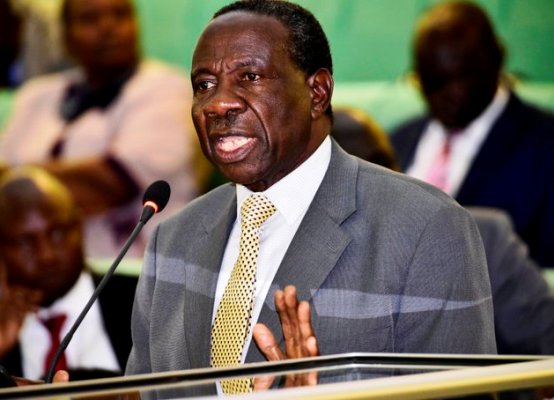The Minister of Finance, Planning, and Economic Planning, Matia Kasaija has lauded the retirement benefits sector as key to Uganda’s economy because of its ability to mobilise national savings and enhance population productivity and wellbeing.
The Minister was releasing the 2020 sector performance report of Uganda Retirement Benefits Regulatory Authority (URBRA) at the Uganda Media Centre in Kampala.
Kasaija noted that the sector was worth Shs17 trillion at the end of July 2021 noting that they collect billions per year in non-tax revenue, which is remitted to the consolidated fund and only appropriated by Parliament.
“Indeed, the retirement benefits sector has demonstrated its ability to deliver to the NDP Ill development objectives, by mobilizing Ugandans to contribute to gross national savings. Retirement savings contribute significantly to the country’s gross domestic savings, which account for a big proportion of the Gross Domestic product,” he said.
In 2020 alone, Kasaija said the retirement benefits sector assets were worth Shs15.4trillion, accounting for 11.1% of GDP, which is more than 50% of Uganda’s gross domestic savings and as of July 2021, the sector had Shs17 trillion worth of assets.
He noted that the sector continues to grow, as more Ugandans become aware of the need to save for retirement.
Currently 2.8 million Ugandans are covered under existing retirement benefits schemes however, this is still low compared to Uganda’s working population, which is approximately 15 million people.
As the sector continues to grow, Kasaija said the role of a sector regulator becomes ever more significant adding that saving for retirement is an important and long-term commitment.
“Savers need assurance that their life long savings are safe and secure. As the regulator, URBRA has developed a strong supervisory regime, which has seen great improvements in governance, investments and scheme administration. The future of the retirement benefits sector is bright,” he said.
He urged URBRA and all other sector stakeholders to continue sensitizing Ugandans about the need to develop a saving culture because this is good for them as individuals and good for the long-term growth of the economy.
“We must chart ways to ensure that all Ugandans in the country’s workforce have an established structure for retirement savings. Old age knows no formal or informal workers. I therefore appeal to URBRA and to other sector players to institute a framework to extend coverage to informal sector workers; we need a secure, affordable, and inclusive micro-pension solution,” he said

















